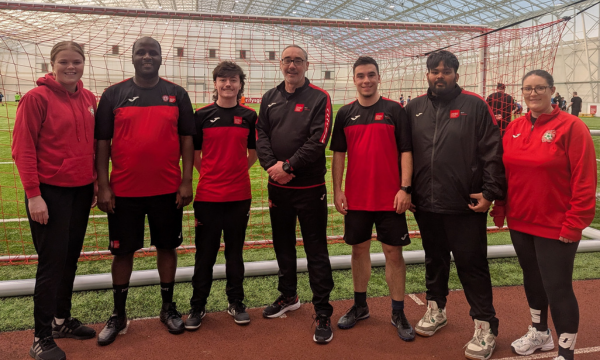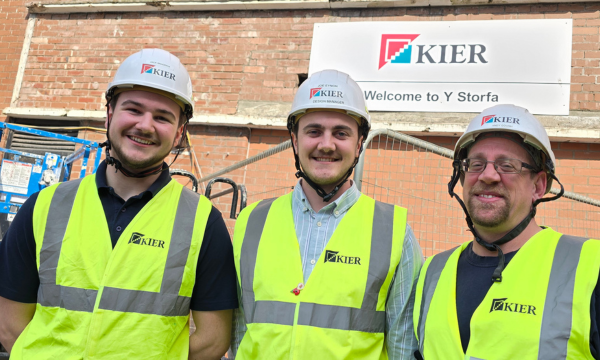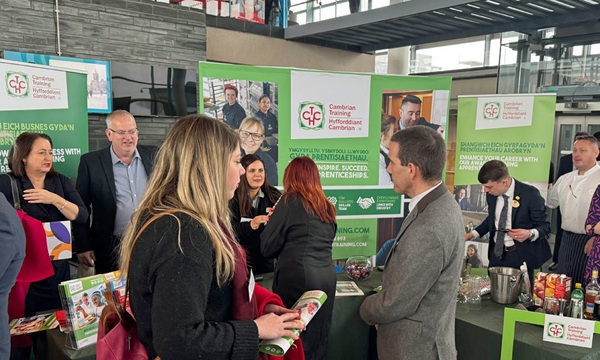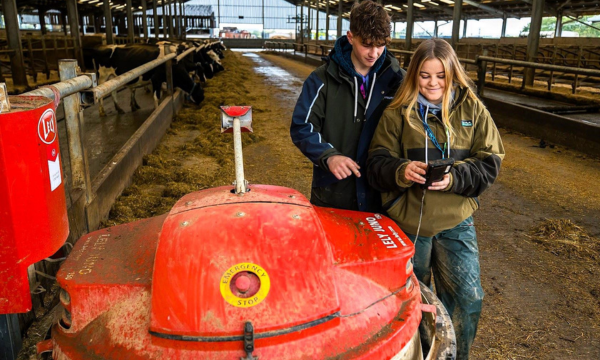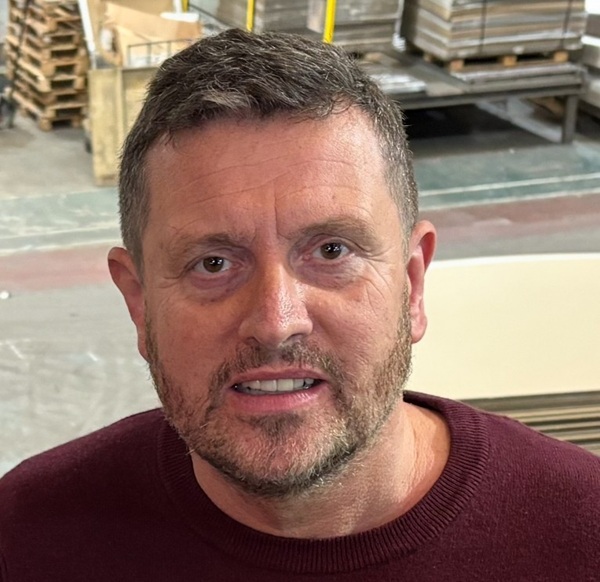
Written By:
Founder and CEO
DiamondPak

As the founder of a growing manufacturing firm, I’m often asked what is the biggest challenge facing the business.
Is it finding new customers and sources of revenue? Is it sourcing new investment and funding to grow? Is it the impact of the wider economy and government policies?
While we have faced all of these issues to varying degrees, the biggest challenge for us over the last five years has been finding people with the appetite to be trained in a manufacturing environment, post pandemic.
At DiamondPak, we supply corrugated cardboard packaging to a wide range of sectors and industries. Our particular niche is e-commerce and technically difficult products that require complex print or die cutting and gluing. As one of the largest independent convertors of taped corrugated packaging in the world, we offer full training for our staff and a patient development process for those who want to learn and are happy to work reasonably hard. Since Covid, however – and despite the massive growth in the e-commerce market – we have experienced a major obstacle to this growth, in terms of recruitment.
Print in general is an industry that’s slowly diminishing, and many media print businesses have closed since Covid as digital media replaces print channels. Despite some success in attracting former print workers, we still see a latent shortage of individuals with an appetite to start a career or work longer shifts at seasonal peak times. The common reason cited is manufacturing is “not attractive to me” or “I stand to lose other benefits if I earn too much”.
We have some of the most advanced equipment conversion equipment in the UK. Our jobs are relatively secure and, unlike others, we don’t require 24-hour continental shift patterns. Despite this, like many other manufacturing and distribution businesses in the UK we have difficulty attracting workers, especially younger ones. The profile of our workforce is getting steadily older year by year.
We are based on the outskirts of Pontypool, close to Cwmbran, an area of Torfaen with a proud history. Torfaen was once a hotbed of industry, a centre for iron, steel and coal mining. Even when those industries started to decline towards the end of the last century, Torfaen had a reputation as a manufacturing centre, with factories making and processing everything from automobile parts and electronics to fabrics and food.
Manufacturing is still a significant part of the local economy, with around 10% of people in Torfaen employed in the sector, but I fear for the future if the “development” skills shortage continues. How can businesses like ours continue to grow and enter new markets if we can’t recruit the people with the skills we need to make it possible? There is a limit to the number of workers who can work in the fast food, hospitality retail sectors – where wages are generally lower, job security is often very limited and working hours are varied and often include weekends, for no additional benefit. But hospitality “pushes the buttons” for many younger workers today.
We know we’re not the only business facing this challenge; it’s both a regional and a national problem. The Torfaen Strategic Economic Forum, which represents businesses in the borough, surveyed local companies in 2023 and identified a lack of skills and training as a barrier to growth. And, a recent report found that almost half of Welsh employers (47%) are still reporting “worrying” skills shortages. The annual Business Barometer, published by The Open University and the British Chambers of Commerce, found that although the landscape in Wales has improved, skills shortages “remain a prevalent issue across all sectors”.
To be fair, Torfaen Council has realised this is an issue is being proactive, and its Economy and Skills Strategy has set out a vision for a competitive regional economy. It wants to support residents overcome barriers to employment and help people gain vocational skills, which are critical to the success of so many of the region’s employment sectors. The council has also been extremely supportive of DiamondPak in the past, helping us access various pots of funding to enable us to grow at times when the financial risks were too great for us to take on without help.
But the problems run deeper. If we are to keep manufacturing alive and successful in Torfaen and across Wales, and keep businesses like ours growing and innovating, we need to start from the ground up. First, we need an education system that values vocational skills as much as academic learning. The imbalance between vocational and academic education has grown, and despite politicians promising to prioritise vocational options, too many young people still see university as the ultimate goal and dismiss a skills-based career path. This is despite the fact that skills-based jobs now often carry a premium and often do not come with the added load of student loans, which can burden employees for many decades.
We also need to improve the image of manufacturing. Yes, the sector has struggled in recent years, but there are still good jobs out there that can lead to long, stable careers. Manufacturing jobs aren’t necessarily glamorous, and they aren’t always easy, but they can be rewarding, both professionally and personally. If we can make more young people appreciate the value of working in this sector, then that’s half the battle won. Businesses like ours are ready to grow, and we’re ready to invest in people to help us achieve that. Now, we need a greater investment in skills to ensure we all succeed.




